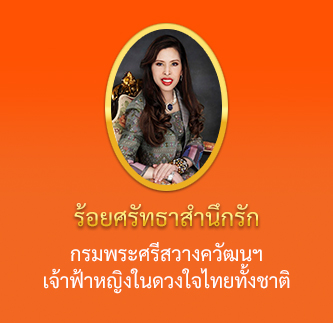

Walailak Researcher digging deep into the impact of using task and game-based learning to improve students’ performance in a TOEFL Preparatory Course using triangulation strategy, digital technologies, language, and content.
With or without the COVID–19 pandemics, achieving a minimum passing score on English proficiency tests has remained a determining factor for varying paths in a student’s life, such as the pursuit of higher degrees and job applications. However, achieving an ideal B2 score set for university graduates remains a challenge, especially for low-proficiency students. This circumstance, as a result, inspires or even compels, many higher education institutions, especially those in EFL English as a Foreign Language) countries, to start a preparatory course to help students gain the score required. However, with the government’s disease prevention measure being enforced, the question is how the preparatory course can be optimized.
 Asst. Prof. Dr. Budi Waluyo, Lecturer of School of Languages and General Education (SOLGEN), Walailak University, investigated this matter in a preparatory TOEFL course. The course teaching contained "tasks" and "games," and learning activities were presented within the framework of digitally integrated language learning.
Asst. Prof. Dr. Budi Waluyo, Lecturer of School of Languages and General Education (SOLGEN), Walailak University, investigated this matter in a preparatory TOEFL course. The course teaching contained "tasks" and "games," and learning activities were presented within the framework of digitally integrated language learning.
“In class, online learning Apps including Kahoot, Socratives and Quizzes are used,” said Asst. Prof. Dr. Budi.
“It is the triangulation strategy, digital technologies, language, and content,” added Asst. Prof. Dr. Budi.
The study was conducted in TOEFL preparatory courses at Politeknik Perkeretaapian Indonesia Madiun and Universitas Muhadi Setiabudi. In the lessons, task and game-based lessons were introduced to undergraduate students enrolled in the online TOEFL preparatory class during the outbreak, and each student has studied English as a Foreign Language for an average of 12 years.
“Throughout the entire course consisting of 20 sessions, lasting 2 hours each, therefore totaling 40 hours. In each lesson, students will be working on the goal-oriented lessons focusing on Listening comprehension, structure and written expression and reading comprehension. They will be completing exercise using game-based applications including Kahoot, Quizzes, Socrative and Google Forms,” explained Asst. Prof. Dr. Budi before talking further about what defines tasked-based learning and game based learning.
Learning English in a non-English-speaking country takes time. That is where games and tasks can step in to become self-directed, interactive, and enjoyable learning lessons for regular training. Owing to the word “game”, in its name, the game-based framework reminds learners of a video game with the achievement goal, scores, tokens, badges, and other game-like components. Therefore, while learning, the excitement and engagement learners get will be more or less like when they are playing games.
“Therefore, in the process, students learn in a way resembling playing games as a result of all the game-like components such as upgrading levels, winning scores or tokens,” said Asst. Prof. Dr. Budi. Four game defining components as pointed out by experts include 1) instructional design 2) game characteristics 3) behavior or attitudes and 4) learning outcomes. Used in conjunction with task-based learning reinforcing integration of activities to expose learners of English as a Foreign Language (EFL) to skill development, learners get to, for example, try using the language or communicate in a highly interactive activity. Instead of just listening, learners get to learn through real practices.

In this research, Assistant Professor Budi selected applications based on the course content. Kahoot, Quizlet, Quizzes, Socrative, and Google Form were integrated throughout the 20 sessions of the course, totaling 40 hours. After that, the total scores of the pre-test, post-test and individual scores were considered. The assessments consisted of 140 questions that focus on three areas of skill to see how the incorporation of task- and game-based learning affects students' learning outcomes in terms of their overall and specific-skills TOEFL scores.
After the program, data suggested that both the teachers and students benefitted from the method. On the part of the instructors, they reported the need to review class contents as well as the instructional methods applicable to online classes. Learning to use a new application is one example. As for the students, digital literacy development also proved to materialize as they learned to navigate each application more easily. On top of everything, TOEFL skill development was also evidenced by the scores as the differences were found in the outcome of the Railway Mechanical Technology and Management study programs; A total of 25.15 mean differences, 3.21 in listening, .75 in structure, and 5.10 in reading.
According to the paired sample t-test and Cohen’s d coefficient analysis, given the passing mark for Railway Mechanical Technology being 480, 33 students (68.75 %) failed the post-test and 15 students (31.25 %) received a passing score. Although fewer than 50% of students met the minimum criterion, their performance improved by 27.08 % when compared to pretest results (13 students added). Self-directed learning grows over time as students gain digital literacy skills, allowing them to engage in learning on their own.
Please click on the link below to read a full article

Photos by Asst. Prof. Dr. Budi Waluyo, School of Language and General Education
Article by Nootchanat Sukkaew, Division of Corporate Communication
